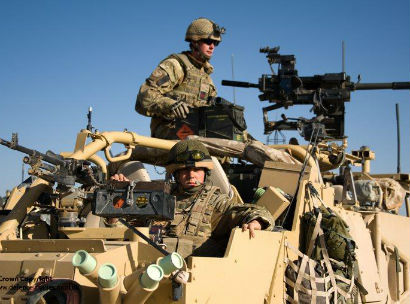 Much of the discussion about the economic problems facing Britain is based on a myth.
Much of the discussion about the economic problems facing Britain is based on a myth.
Put simply, the myth is that Britain’s national deficit between income and expenditure is attributable to unsustainably high wage levels, excessively generous pension schemes (particularly for public sector workers), high levels of social service benefits which discourage the search for jobs, too low a retirement age and unnecessary subsidies for social benefits including social housing, higher education and some disability allowances.
The main advocates of this myth are to be found in and around the Conservative Party and among newspapers sympathetic to the Conservative Party.
Unfortunately, some Labour politicians also subscribe to some of these myths, though almost always in a less emphatic manner than their Conservative counterparts. They subscribe to the ‘responsible’ view that the Labour Party should acknowledge the need for economy in social spending as an essential prelude to recovery. Labour politicians are also usually more ready than their Conservative opponents to draw attention and to criticise the excessive incomes and bonuses received by many of the top people in banking and commercial services.
Nevertheless, some Labour politicians have not vigorously defended or identified themselves with the efforts of working people through their unions to defend their jobs, wages and conditions. They are, in my view, wrong not to have done so.
The reason why they are wrong is that Britain’s economic deficit is attributable primarily to the commitment to unjustified and unnecessary wars in recent years. War, particularly when fought at great distance, is extremely expensive.
There was the war in Iraq. It was conducted by a Labour Government under Tony Blair. It was ‘justified’ on the false assertion that Iraq was in possession of nuclear weapons capable of a destructive attack on Britain or British possessions at very short notice.
No evidence was ever found to justify this allegation, nevertheless an extremely expensive war was conducted which not only added heavily to Britain’s financial burden but led to many deaths both among Iraqi citizens and among the military of the invading forces.
The other very costly military adventure is in Afghanistan seems interminable.
The origin of the Afghan war was partly internal and partly external. The USSR withdrew in 1988 because it became clear that they could not decisively influence the outcome of the internal struggle in Afghanistan and because of their own casualties. The conflict continued and now ten years after invading, NATO continues to suffer casualties, without being able to strike a decisive blow. The Taliban remain in Afghanistan and has neither won nor been defeated, so the war continues.
The third military conflict in which the British Government chose to intervene was in Libya. Whatever the rights and wrongs of the Gadaffi regime – and there were both rights and wrongs – it was not the legitimate role of Britain to intervene with extensive bombing raids under the claim that it was defending civilians. Gadaffi was defeated, above all, by foreign military intervention including British forces.
There have also been other expensive military interventions by Britain in recent years. One such intervention was in Kosovo in the determination of some of the Western powers to bring about the disintegration of Yugoslavia. NATO acted independently of the United Nations, being well aware that Russian and China would have vetoed the bombing of Kosovo. The Yugoslav war removed the pretence of the sanctity of the UN Charter. It was Harold Pinter who said as long ago as 1999, that ‘the NATO action in Serbia had nothing to do with the fate of the Kosovan Albanians but was another blatant assertion of US power.’
Spending on war on the scale of recent years needs now to be eliminated from Britain’s expenditure. This is essential for Britain’s economic recovery.
Jim Mortimer was General Secretary of the Labour Party from 1982 to 1985.
This blog was from his contribution to the 2012 CLPD AGM.
Photo shows an All Terrain Jackal vehicle of the Household Cavalry in Afghanistan, by Sergeant Russ Nolan RLC. Defence Images.

